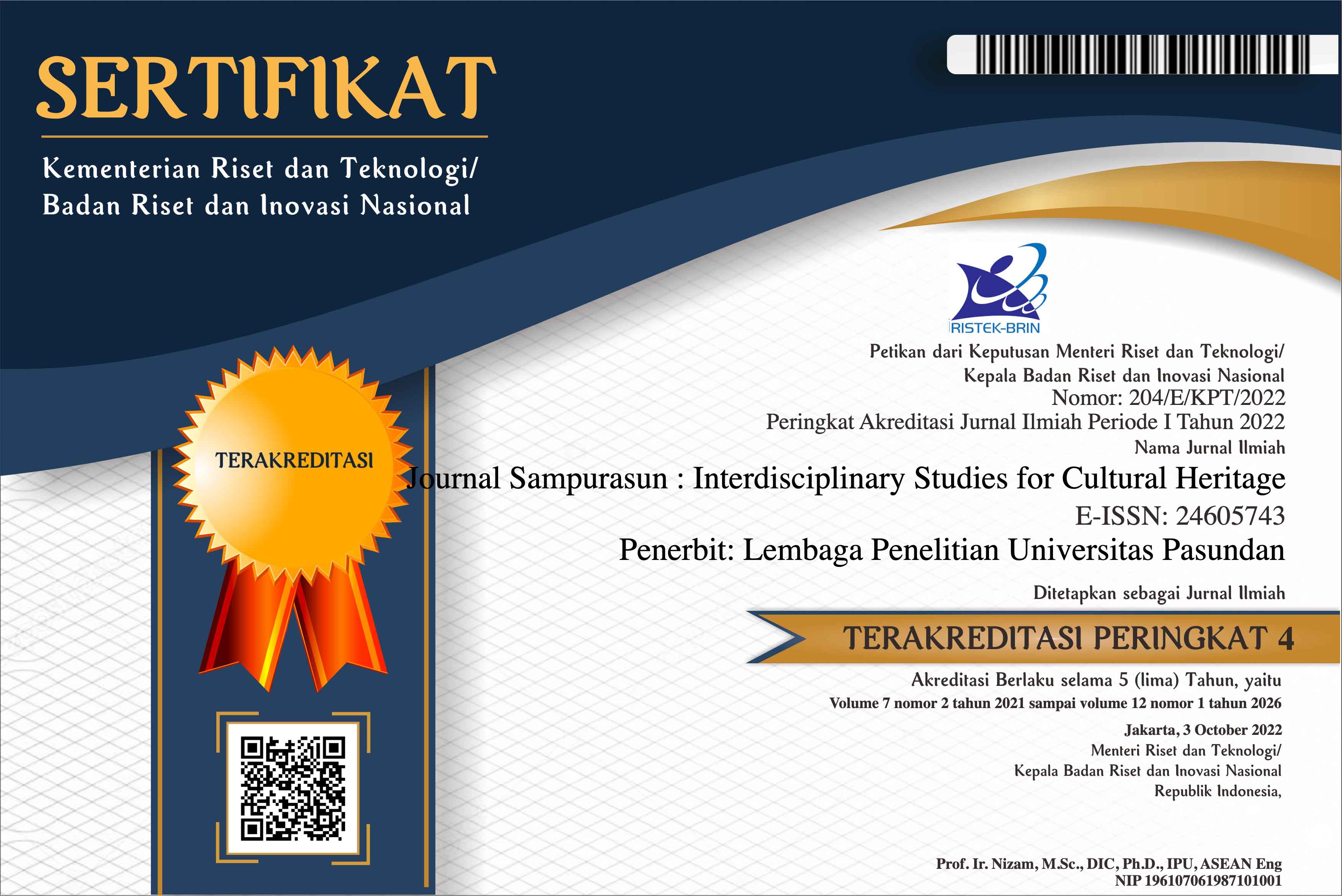REGIONAL TAX SERVICE QUALITY STRATEGY RIGHTS TO LAND AND BUILDING IN THE CITY OF BEKASI
DOI:
https://doi.org/10.23969/sampurasun.v7i1.3201Keywords:
Service Quality StrategyAbstract
The main problem in this research is that the service quality strategy of the Regional Tax on Acquisition of Land and Building Rights (BPHTB) in Bekasi City has not been effective. The research method used by researchers is descriptive analysis with this type of research is qualitative. Qualitative methods are chosen with the consideration that this method is expected to obtain real data and is able to study research problems in depth so that the expected results can be obtained. Based on the results of the analysis, that there are strategic factors that can improve the quality of local tax services for land and building rights acquisition fees in Bekasi City, namely structural development strategy factors, development or simplification strategies, infrastructure development strategies, cultural or cultural development strategies and development strategies. entrepreneurship However, in its implementation there are strategic factors that have not been running effectively, namely entrepreneurial development strategy factors, so that there are still problems faced related to improving the quality of local tax services for Acquisition of Land and Building Rights in Bekasi City. This of course also has not been able to provide the best way to provide quality public services, especially with regard to local tax services for Acquisition of Land and Building Rights in Bekasi City.Downloads
References
Denhardt, Janet Vinzant and Denhardt, Robert B. 2004. The New Public Service: Serving, Not Steering. New York : M.E. Sharpe.
Decree of the Minister of State Apparatus Empowerment Number: EP/25/M.PAN/2/2004 concerning General Guidelines for Compiling the Community Satisfaction Index of Government Service Units.
Government Regulation Number 25 of 2000 concerning Government Authorities and Provincial Authorities as Autonomous Regions.
Law Number 23 of 2014 concerning Regional Government
Law Number 28 of 2009 concerning Regional Taxes and Regional Levies
Muliawaty, Lia. 2013. Administrasi Publik, Teori Kontemporer. Bandung: Lemlit Unpas Press.
Nazir, Moch. 2011. Metode Penelitian. Jakarta: Ghalia Indonesia
Osborn, David dan Plastrik Peter. 2001. Banishing Bureaucracy: The Five Strategies for Reinventing Governmet. Massachusetts:Publishing Company
Pasolong, Harbani. 2010. Teori Administrasi Publik. Bandung : Alphabeta.
Rasul, Syahrudin. 2000. Pengukuran Kinerja Suatu Tinjauan terhadap Instansi Pemerintah. Jakarta : Djambatan.
Rasyid, Ryaas. 2008. Makna Pemerintahan. Jakarta : Yasrif Watampone.
Regional Regulation (PERDA) Number 15 of 2010 concerning Regional Taxes
Sedarmayanti. 20010. Restrukturisasi dan Pemberdayaan Organisasi untuk Menghadapi Dinamika Perubahan Lingkungan. Bandung : CV. Mandar Maju.
__________. 20014. Sumber Daya Manusia dan Produktivitas Kerja. Bandung : CV. Mandar Maju.
Sugiyono. 2017. Metode Penelitian Administrasi. Bandung : Alfabet.
Supranto, J. 1997.Pengukuran Tingkat.
Suryadi, Soleh, 2009. Administrasi Publik dan Otonomi Daerah. Bandung : Prisma Press.
Tangkilisan, Hessel Nogi. 2003. Manajemen Publik. Jakarta : Grasindo.
Tjiptono, Fandi. 2019. Manajemen Jasa. Jogjakarta: Penerbit Andi.
Downloads
Published
Issue
Section
License
Copyright Notice
Authors should not withdraw their submitted papers because the withdrawal wastes voluntary works devoted by an associate editor and reviewers. But, we accept the withdrawal of a submitted paper if authors have unavoidable reasons. In the event that a manuscript is to be withdrawn from submission to Sampurasun Journal, a letter must be sent to the editorial office requesting withdrawal by e-mail (sampurasunjournal@unpas.ac.id) with its scanned PDF file, before the notification of acceptance for publication.
The withdraw request letter must include the following information. Paper ID, Paper title, Authors names, Reason why the paper must be withdrawn, and Date and signatures of all the authors (or signature of the contact author).
If only the contact author signs the letter, he/she must obtain the agreement of the withdrawal from all the other authors and the letter must include the description that all the other authors agreed the withdrawal. The journal will not withdraw a manuscript from peer review until such a letter has been received. Authors must not assume their manuscript has been withdrawn until they have received appropriate notification from the editorial office. Withdrawal of a manuscript subsequent to acceptance for publication will only be granted in the most exceptional of circumstances.
After the paper is accepted for publication, the withdrawal is not permitted in principle. The authors must always pay the charge even if the withdrawal is permitted. Any request of withdrawal that does not follow the above procedure is treated as invalid. If illegal submission, e.g., plagiarized or duplicate submission, is found for a paper, the withdrawal of the paper will never be permitted and the authors will be punished based on the rule. It is not acceptable practice to withdraw a manuscript in the event of acceptance at another journal. This constitutes dual submission. The editorial office of the other journal will be notified of your actions. In such circumstances Sampurasun ISCH may chose to impose appropriate punitive action subject.
Withdrawal Penalty
Author is not allowed to withdraw submitted manuscripts, because the withdrawal is waste of valuable resources that editors and referees spent a great deal of time processing submitted manuscript, money and works invested by the publisher. If author still requests withdrawal of his/her manuscript when the manuscript is still in the peer-reviewing process, author will be punished with paying $200 per manuscript, as withdrawal penalty to the publisher. However, it is unethical to withdraw a submitted manuscript from one journal if accepted by another journal. The withdrawal of manuscript after the manuscript is accepted for publication, author will be punished by paying US$500 per manuscript. Withdrawal of manuscript is only allowed after withdrawal penalty has been fully paid to the Publisher. If author don't agree to pay the penalty, the author and his/her affiliation will be blacklisted for publication in this journal. Even, his/her previously published articles will be removed from our online system.


















